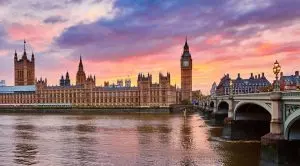 A couple of days ago, the UK Gambling Commission (UKGC) shared an opinion on the increasing popularity of the so-called house raffles. The latter provide home owners who would like to dispose of their properties in an innovative way, by offering them as prizes in special lottery draws.
A couple of days ago, the UK Gambling Commission (UKGC) shared an opinion on the increasing popularity of the so-called house raffles. The latter provide home owners who would like to dispose of their properties in an innovative way, by offering them as prizes in special lottery draws.
The UK gambling regulatory body, however, warned that while such actions may look like a good idea, home owners must make sure they are not breaking any gambling laws. The UK Gambling Commission also emphasized on the fact that individuals who are trying to raise hundreds of thousands of pounds by offering their properties in house raffles could be sent for 51 months to prison and be forced to pay a monetary fine of up to £5,000.
Currently, UK gambling legislation categorises lotteries, raffles and tombolas as games that are entirely based on luck, so they are only allowed to be used to raise money for charity causes. This basically means that lottery games described as house raffles could be legal only in case that they feature an element of skill.
Last week, Casino Guardian reported that a 51-year-old woman had won a Lancashire-based manor house, which previous owners had failed in finding a buyer for the property. As a matter of fact, an increasing number of home owners in the region have lately been looking for alternative ways to dispose of their properties, especially considering the fact that the latest surveys indicate that the volume of house sales across the country has shrunk.
That has been one of the main reasons why UK home owners have been looking for alternative ways to dispose of properties they have been finding difficulties to sell by using more traditional means. However, the UK gambling regulatory body raised a red flag over the instances in which organisers of house raffles are breaking the law, because the ways their raffles are set are usually breaking the laws by organising illegal lottery.
On the other hand, lotteries, raffles and tombolas are considered a form of gambling under the current gambling laws in the country. Apart from the exact rules about how such forms of gambling can be organised and run, they are regulated by the UK Gambling Commission, which means that in some circumstances, their organisers may need an operating license for such an activity. In any case, such an activity would need the UKGC’s permission first.
As mentioned above, lotteries can be run for charity and non-for-profit causes, so that they cannot be run for private or commercial gain. The UK Gambling Commission further revealed that in 2016 alone, society lotteries that run under a special license managed to raise the massive amount of £230 million for good causes. According to the British gambling regulator, it is important for this area of gambling to be kept exclusively for such good causes instead of being used illegally.
The Lotteries Expert of the UKGC – Cliff Young – said that the local gambling regulator has been aware of the fact that most house raffles schemes have been operated as prize competitions or free draws, which are not categorised as a form of gambling under the existing gambling legislation and are not regulated by the Commission. He also reminded that it is Commission’s job to provide some tips on the difference between lotteries, competitions and free draws and draw a clear boundary between free draws and lotteries for personal and commercial gain.
Mr. Young further insisted that all lotteries across the UK must be organised and operated under the existing laws, so they need to be properly licensed in order for the organisers to prevent themselves from being involved in legal troubles by running illegal lotteries.
- Author


